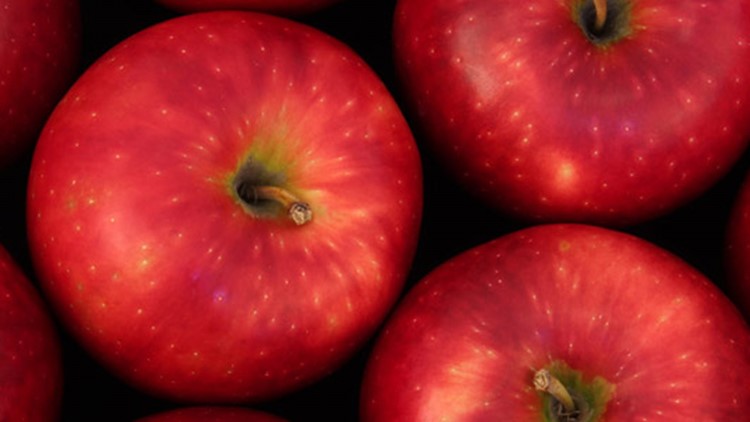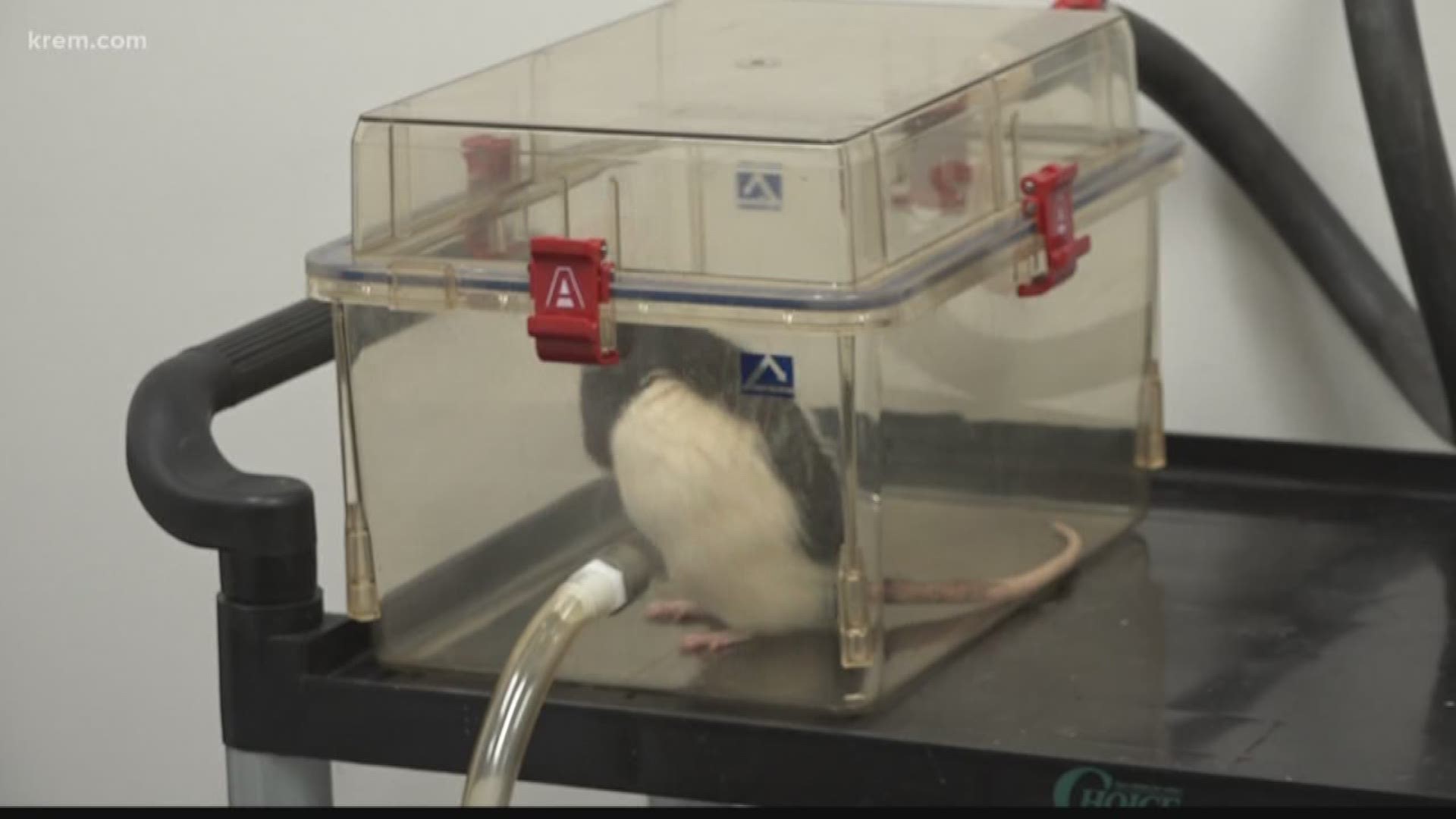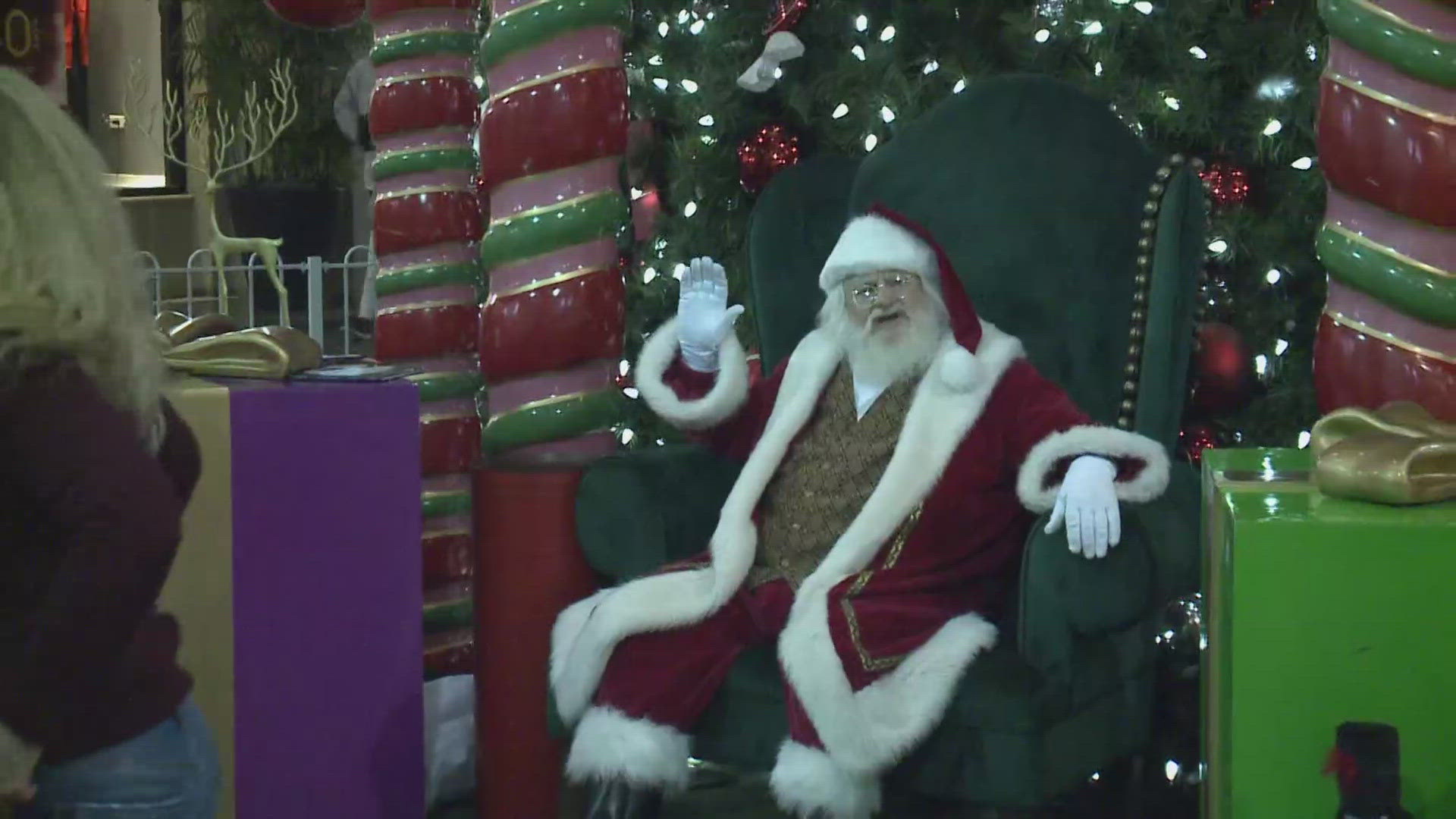PULLMAN, Wash. — Washington State University's 'Cosmic Crisp' apple received praised in an article in Time Magazine.
The Cosmic Crisp apple, cultivated by Washington State University students in the College of Agricultural, Human, and Natural Resource Sciences as long as 20 years ago, is set to hit store shelves very soon. The apple is a cross between the Honeycrisp and Enterprise apple.
Time's article claimed that "This Year's Biggest Apple Release Has Nothing to Do iPhones."
In the article, Time discusses how the apple has the potential to be "a game changer" in comparison to other apples. They spoke with horticulture professor Robert Crassweller of Penn State University who had heavy praise for the apple.
"This is the first time anyone has made such a concerted effort to develop a variety, release it and commit to such a large quantity," Time said.
This particular type of apple is also unique because it was cultivated specifically to thrive in the Washington state climate and stay ready to eat for as long as 12 months after being picked. The Cosmic Crisp is going to be up against some competition, but the research into new apples hasn't stopped since the initial crossing in 1997, and WSU's Kate Evans claims they are in the "advanced selection phase" of their next creation.
The project is ahead of schedule, as researchers were hoping to have the sweet fruit available to the public by 2021, according to Dr. Stefano Musacchi, a WSU Tree Fruit Physiologist. The growers created a website where growers and apple enthusiasts can find out more information on the growing process and just what makes the Cosmic Crisp apple so unique.
Recent news surrounding the apple involves a lawsuit in which WSU alleged that Seattle-based startup Phytelligence sold as many as 135,000 cosmic crisp trees. Phytelligence denied these allegations. Regardless of the recent drama regarding the apple, it's set to take American food markets by storm and provide a unique taste and longer shelf life than the average apple.
The below video is a report on Washington State Students researching the effects of "the munchies".




